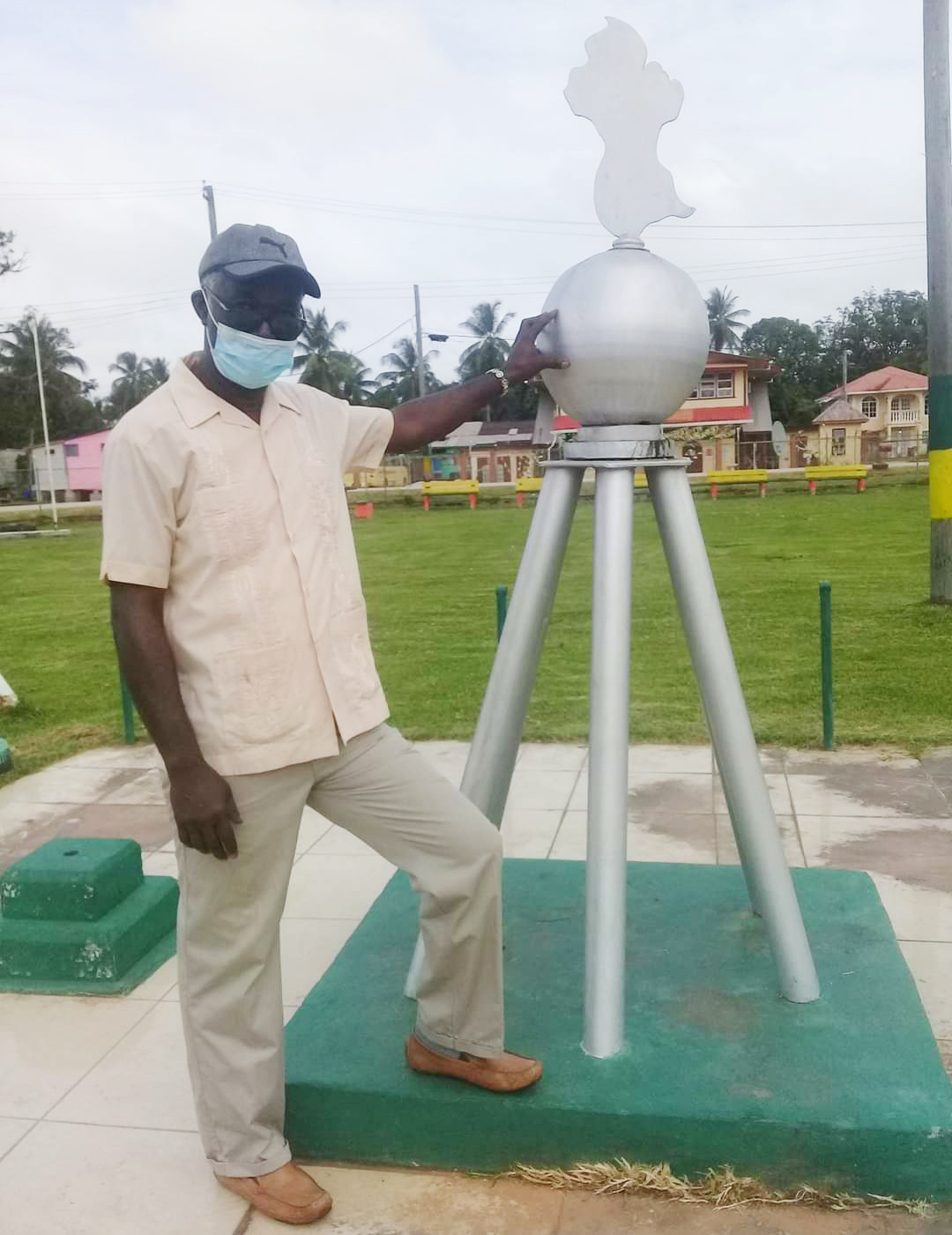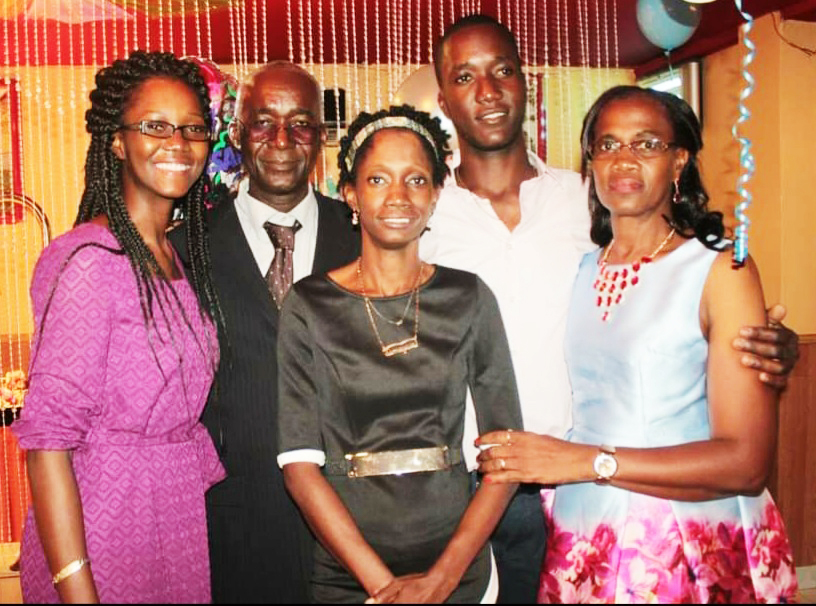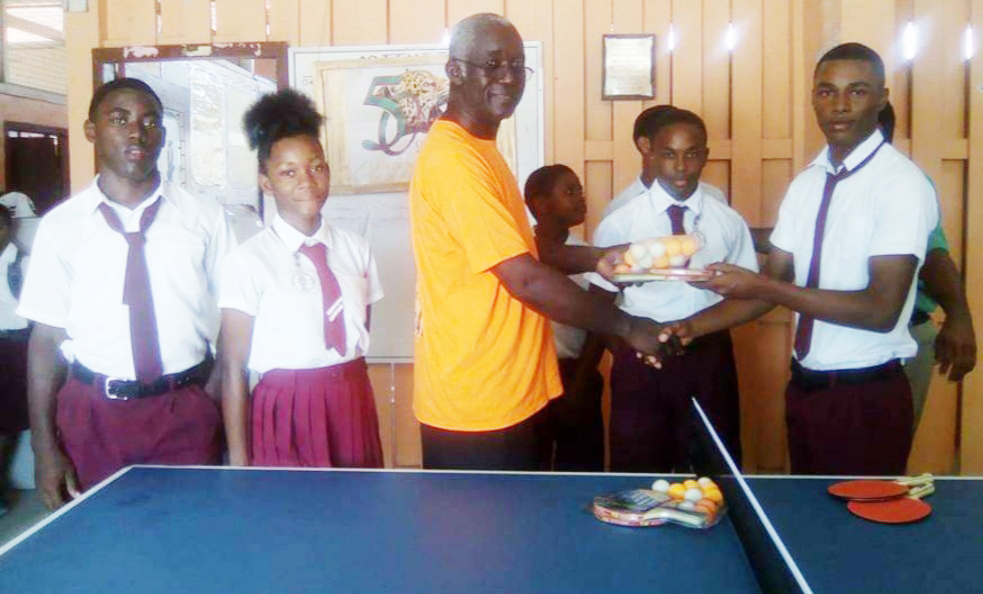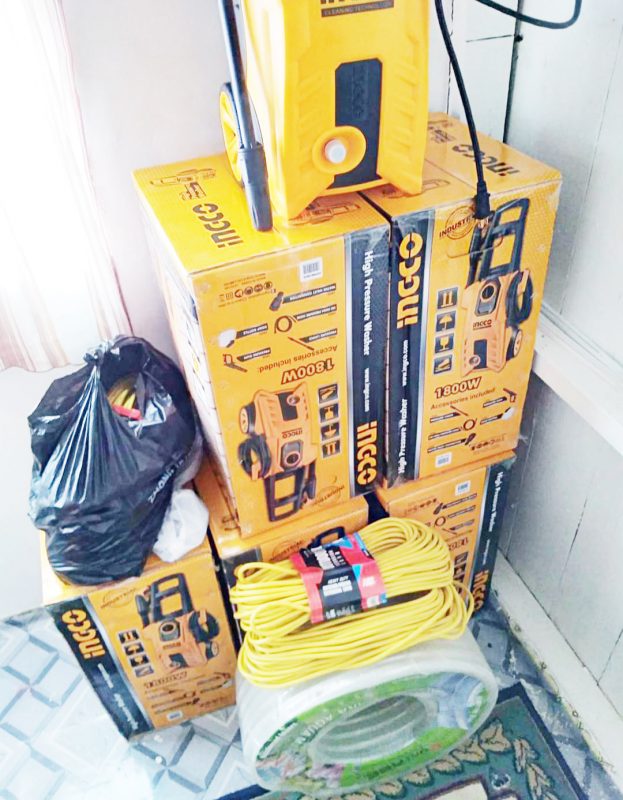After a being referred to the ‘trade school’ in Linden due to his academic shortcomings at Kwakwani Secondary, Jocelyn Arindale ‘Jam’ Morian, 57, never failed another test.
“After failing in Form Four, I was encouraged to move away from academics by my industrial arts teacher Robert Syfox who gave me application form for entry to the trade school. He said, ‘Take this form and tell your mother that secondary school is not for you,’” said Morian, recalling the events that to his enrolment at the Guymine Technical Training Complex, now known as the Linden Technical Institute (LTI).
“The very term I began the apprenticeship, the trade school began to hold open air graduation ceremonies. I saw a girl graduating from the apprenticeship scheme and I said to myself, once a girl could complete this, I will succeed, too. I was determined to successfully complete the apprenticeship. I began to focus on my studies, started getting good grades and after that I just enjoyed learning,” Morian told Stabroek Weekend.
Now married and the father of three, Morian is a technical training instructor, machinist, community activist, and an avid letter writer about issues that affect his community, particularly those of elders and their old age pension issues including accessing National Insurance Scheme pensions.
“Many of these issues have been solved just by the power of the media. Sometimes I would go to the managers or the public relations officers to seek their help. I develop a relationship with the officers and that helps. My compensation for doing this is the satisfaction that someone’s life is made better.”
Morian returned to Kwakwani, his hometown, after graduating from trade school in 1985 and began working as a machinist with Bermine. He was subsequently promoted to mechanical maintenance supervisor and was also given the portfolio of training instructor for on-the-job training of apprentices. Later on he became a senior technical training officer.
“When I was in charge of the apprenticeship scheme at Kwakwani, I had to be firm and tough in why things had to be done in a certain way, because the standard that had been set in work ethics had to be maintained. Many of the apprentices who… grumbled at the time when I was tough with them are now all over the world and they would thank me for the discipline I instilled in them.”
“When I started working, it was engrained in me that I had to share the knowledge from the opportunity given to me. I always set up in my work area – a blackboard with chalk – to demonstrate what was being done and its outcomes. The apprenticeship programme was certified by the Board of Industrial Training.
When the on-the-job training ceased, Morian said, “Students, whether they were going to LTI, GTI [Government Technical Institute] or NATI [New Amsterdam Technical Institute] had assignments and they needed help, they would come to me to help them. If I cannot help them, I would refer them to someone who could. I never turn away any of them without some help.”
After Bermine under local management was shifted to RUSAL, Morian was also placed in charge of water distribution in the community. He had to make some changes because potable water was being rationed at the time, and there was need for adequate distribution with no more, or no less resources. He had to go into the community and talk to residents about water wastage and its implications. “I tried not to find excuses why somethings could not be done.”
Self-help
The Morian family house in Kwakwani overlooks Independence Square, where all the community activities involving national and local celebrations take place. Witnessing these events and listening to the radio and reading newspapers about the national development in the 70s instilled in a young Morian a sense of patriotism of wanting to do things to develop his community.
“I became engrossed and enthusiastic about the then Feed, Clothe and House campaign that was being encouraged by the government of the day. When the teachers’ hostel was being built, as a small child of about eight years old, I would join in with other children to fetch water in small buckets or cans, for the men to mix the cement.
“When I grew older and Kwakwani Housing Scheme was being built, I would run the wheelbarrows with other teenagers fetching cement for the men to build blocks. I would wait for school to over on an afternoon when I could help, and I waited for Saturdays and Sundays when I could go to the housing scheme to help. All this was done by self-help. I still hold fast to the principles of self-help.”
According to Morian, his batch of intakes at the trade school, the 23rd batch, may be the most closely-knitted batch that graced the school and they have held together through thick and thin. “While many are abroad and some are working in more lucrative industries like gold and oil and gas, we have always been giving back to the community,” he said.
They do not have a formal group but they get together when needed to get things done at short notice or they plan in advance for shortcomings. “We provide sports equipment. We assist in providing education materials and stuff like that. I am the coordinator for the mobilisation of these things.”
With the current flood in Kwakwani and with most donors donating food and sanitation hampers, Morian said, “We are going to support the clean-up after the flood waters would have receded in a big way.”
The 23rd batch of apprentices are contributing to the purchase of six electrical pressure washers and drop cords to wash and sanitise the homes that were inundated.
Morian does not live in the flooded area but according to him it is the “worse I have seen in my lifetime.”
He said he has already been in discussions with the pastor of the Full Gospel Fellowship in the area that has been mobilising its membership to manually assist in the clean-up of the homes using hand brushes and rags. The clean-up will rely on self-help.
Generally, Morian takes it on himself to assist the nursery, primary and secondary schools in their preparation of their schools’ athletic championships. He marks the ground so the children can run their races in lanes.
“I never turn down any invitation to be a guest speaker or to give the charge to graduands at the schools’ graduation ceremonies.”
For national events, like flag-raising ceremonies, he is always in the forefront working with the neighbourhood democratic council and the regional democratic council to ensure that the activities go off smoothly and according to protocols.
Morian maintains the Kwakwani Independence Monument by painting and keeping the area around the monument clean. For his 40th birthday, with permission, he included a map of Guyana on top of a globe which he said symbolises Guyanese working in harmony to put the country on top of the world.
“I do these things on my own. I work at a particular standard. I prefer to work on my own. It might appear selfish but I ensure that I get things done. If there is self-help activity, I will go with my equipment. It is my patriotic and philanthropic duty to assist. I do not ask for payment.”
Health, women’s rights
When the local television station in Kwakwani was set up, Morian said, the resident physician, Dr John Dickenson was looking for someone to sensitize the community about health, nutrition and hygiene. “After about three weeks he could not get anyone to start the programme. I volunteered and was the host of the programme called Health Watch. I would take time out and sit with the staff preparing the show. I did this voluntarily for as long as the programme lasted. “I know for sure it was well received by a number of persons based on the feedback.”
Morian says he is also big on family and has been married for 30 years. “I try to encourage men to find ways to ensure that their family stays together. I believe that if you want to ensure a strong relationship men need to compromise and play a greater role in nurturing children in the home.
“During the time when my children were going to school, I got involved in every aspect of their education by being an active member of the schools’ parent-teachers associations, in their sports and extracurricular activities.
As an advocate against domestic violence, he said, his male colleagues sometimes ask him if he is a man or a woman.
“Some of the derogatory things men do to women is a no-no for me. The strongest part of a woman is her mouth and sometimes you just have to get up and walk away and leave her to talk.”
As he sees the issue, he said, “The average man does not live to please the woman he is living with. There is a need to break that cycle. He lives to please his friends and associates. We are living in a male-dominated society where every issue is based on male domination. This is due to lack of knowledge and awareness and men being given the belief that every issue revolves around them.”
He is a regular on the Pepperpot Hour hosted by Enid Joaquim on the radio station 104.3 FM where he shares his views on women’s rights.
He often refers to a verse in Proverbs in the Holy Bible, which says. “‘Man look at the ways of the ant and be wise.’ It is not a king or male that is in charge of the colony but a queen. There is order in the way they obtain their food. If we men could just listen and take the advice from our women and let them be part of the decision-making process, we will all live a comfortable life.”
Community advisor
Morian said he has also evolved into being a community advisor. “Whole day I could give advice. Everyday somebody comes to me with a problem or they just want a second opinion because they might be second guessing themselves.”
He said there was a father and mother who could not read or write so they could not help their children with their homework given to them by their teachers. The father was working at Bermine using his technical skills.
“I advised them to just buy books, make bookshelves load it up with books and give those to their children. All they needed was to use discarded or recycled materials to build shelves along with a coat of paint. With knowledge gained the children could not go wrong. Their daughter was the first child out of Kwakwani to pass common entrance to go to Queen’s College. You don’t have to have big money to buy fancy things for your children. Buy books and give them.”
He accepts the title that he could be highly controversial but he is so because there is only so much he can compromise, he said. If it compromises his human rights, he has an issue with that.
Last but not least, he is a winemaker, who uses local fruits, including karila, and though he did not say it, he may very well want to pass on that skill to someone else as well.









